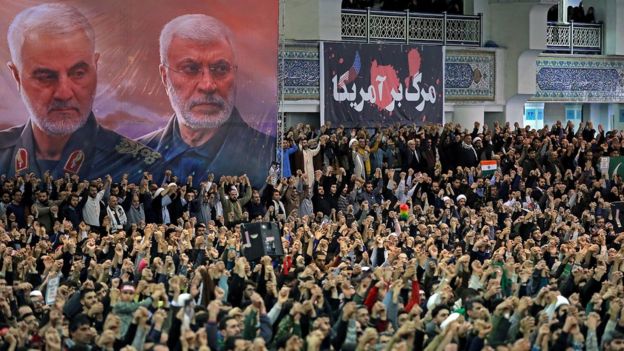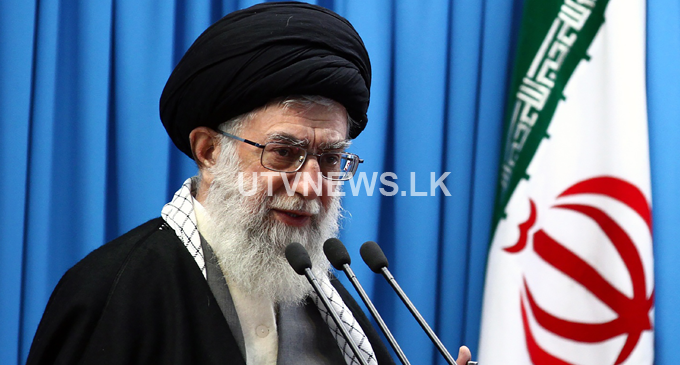(UTV|TEHRAN) – Iran’s Supreme Leader Ayatollah Ali Khamenei has defended the country’s armed forces after it admitted shooting down a passenger plane by mistake.
He said the Revolutionary Guard – the elite unit responsible for the disaster – “maintained the security” of Iran.
Widespread protests and criticism from abroad have put growing pressure on Iran over its handling of the incident.
But the ayatollah tried to rally support as he led Friday prayers in Tehran for the first time since 2012.
The Ukraine International Airlines Boeing 737-800 was travelling to Kyiv from Tehran on 8 January when it crashed shortly after take-off. All 176 passengers on board, including nationals from Iran, Canada, Sweden and the UK, were killed.
The ayatollah called for “national unity” and said Iran’s “enemies” – a reference to Washington and its allies – had used the shooting down of the plane to overshadow the killing of senior Iranian general Qasem Soleimani in a US drone strike.
“Our enemies were as happy about the plane crash as we were sad,” he said.
“[They were] happy that they had found something to question the Guard and the armed forces.”
The Iranian authorities initially denied responsibility but, after international pressure mounted, the Revolutionary Guard admitted that the plane had been mistaken for a “cruise missile” during heightened tensions with the US.
Hours before it was shot down, and in response to the killing of Soleimani, Iranian missiles targeted two airbases in Iraq that housed US forces.
Washington initially said no US troops had been injured, but it later reported that 11 people had been treated for concussion after they showed symptoms days after the missile strikes.
What else did the ayatollah say?
Ayatollah Khamenei, 80, addressed the nation from the Mosalla mosque in the capital. The last time he did so was in 2012 on the 33rd anniversary of the country’s Islamic Revolution.
Leading Friday prayers in the capital is a symbolically significant act usually reserved for times when Iran’s highest authority wishes to deliver an important message, says Mehdi Khalaji of the Washington Institute for Near East Policy.
Historically, Iranian leaders have left this task to loyal clerics with strong oratorical skills, he adds.

As well as defending the military, the ayatollah:
- Criticised the “evil” administration of US President Donald Trump, whom he called a “clown”
- Accused Washington of “lying” when it expressed support for the Iranian people, and said the US would “stab them with their poison dagger”
- Said the Iranian missile strikes in Iraq were a “slap on the face” to the US
- Described Iran’s elite Quds Force – which the US has designated a terrorist organisation – as a “humanitarian organisation with human values”
- Called Soleimani’s funeral and the Iranian military response a “turning point in history”
- Lambasted the “evil” British government, along with Germany and France, for triggering the formal dispute mechanism over the 2015 nuclear deal
In response, the US government’s Special Representative for Iran, Brian Hook, said Iran would remain isolated “as long as the regime threatens the world”.

